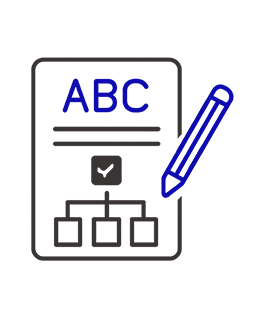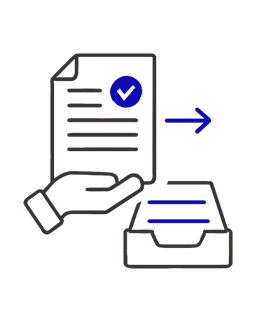Business setup In Offshore
Ready to take your business global with a UAE offshore company formation? Buckle up, because launching an offshore company in the UAE is like hitting the jackpot for international entrepreneurs! It’s your ticket to tax-free profits, asset protection, and a prestigious business address in one of the world’s top offshore jurisdictions. A UAE offshore company—often called an International Business Company (IBC)—lets you register a business entity in the UAE while operating exclusively outside the country. This means you tap into the UAE’s rock-solid stability and global credibility while running your international trade, e-commerce, or consulting services anywhere in the world. With 100% foreign ownership, zero income tax, and bulletproof confidentiality, you’re not just setting up a business—you’re structuring a cost-efficient, secure, and scalable global operation. Let’s dive into why this is the smartest move for your business expansion.

What is an Offshore Company in UAE?
- Tax benefits: Enjoy tax-exempt status on income and profits, keeping every dirham you earn.
- 100% foreign ownership: Take full control—no local sponsor needed, unlike UAE mainland setups.
- Confidentiality: Your business and financial information stay private, with no public disclosure of directors or shareholders.
- Limited liability: Your personal wealth is protected, with shareholder liabilities capped at their share capital.
How to Set Up a Company In Offshore?

Choose the Right Offshore Jurisdiction

Decide on Company Structure & Name
Key Benefits of Business Setup In Offshore

Documents Required for Registering an Offshore Company in UAE
- Copy of Passport: A clear and valid copy of the passport for all shareholders and directors.
- Passport-sized Photographs: Recent passport-size photographs of each shareholder and director.
- Emirates ID: A copy of the Emirates ID for UAE residents (if applicable).
- Valid Visa: A copy of the valid UAE visa for residents or entry stamp for non-residents.
- Application Form: Completed offshore company registration form.
- Memorandum of Association (MoA): A legal document outlining the company’s structure and operations.
- Business Plan: A comprehensive business plan detailing the company’s objectives and activities.
- Original Bank Reference Letter: A reference letter from the bank for all shareholders, confirming good financial standing.
Our Business setup in Offshore include:

Business Setup Ajman Offshore

Business Setup RAK Offshore

Business Setup Jebel Ali Offshore
Frequently Asked Questions about Business Setup In Offshore
The key difference is where they can do business. A mainland company trades within the UAE market. A free zone company operates within its specific zone and internationally. An offshore company is strictly for international business and cannot have a physical presence or sponsor visas in the UAE, offering maximum confidentiality and a simplified structure.
No. While it offers a tax-free environment for foreign profits, the UAE is a white-listed, highly respected international business hub. It complies with global anti-money laundering (AML) regulations, making it a credible and compliant jurisdiction, unlike traditional "tax havens," which often face banking restrictions.
The main benefit is 0% corporate tax on international profits. Additionally, there is no personal income tax, no capital gains tax, and no inheritance tax. This tax neutrality, combined with the UAE's extensive network of Double Taxation Treaty Agreements (DTTAs), creates a highly efficient structure for managing global income.
An offshore company formation creates a separate legal entity. This builds a legal firewall between your business liabilities and your personal wealth (a key attribute of this legal structure). In case of any commercial claims or lawsuits against the business, your personal assets, such as property and savings, remain securely protected.
It’s ideal for a wide range of global entrepreneurs and businesses. This includes hyponyms (specific examples) like:
- International traders managing import/export.
- Consultants and service providers with global clients.
- Investors wanting a holding company to manage assets.
- High-net-worth individuals seeking privacy and asset protection.
No, and that’s a major advantage. An offshore company setup does not require you to lease a physical office, which keeps setup costs low. More importantly, it allows for 100% foreign ownership, so you have full control without needing a local Emirati sponsor.
No. This is a critical point. Because an offshore company is a non-resident entity, it is not eligible to sponsor employment or investor visas. If a UAE residence visa is your priority, a free zone company would be the appropriate business structure to consider.
The timeline varies by jurisdiction. A business setup in RAK ICC or Ajman Offshore is very fast, often completed in just 2-5 business days. A premium JAFZA offshore registration typically takes a bit longer, around 7-14 business days, due to its extensive verification processes.
While the UAE has an excellent banking system, opening a corporate bank account requires thorough preparation. Banks perform strict due diligence and require a clear business plan and proof of your credentials. It’s not difficult, but it is a detailed process. We provide expert assistance to ensure you meet all the bank's requirements smoothly.
The "best" choice depends entirely on your needs. For prestige and real estate investment in Dubai, JAFZA is the top tier. For the best balance of flexibility, global recognition, and cost, RAK ICC is the most popular choice. For the most affordable and fastest setup, Ajman Offshore is an excellent option.
Yes, you can. Offshore companies registered with JAFZA and RAK ICC are specifically permitted by the Dubai Land Department to own property in Dubai's designated freehold areas. This is a powerful feature for international real estate investors seeking both ownership and asset protection.
A properly structured offshore company whose income is solely from outside the UAE is generally not subject to the 9% corporate tax. The law is designed to tax UAE-sourced income. However, all entities must register for corporate tax to declare their status. We ensure this compliance step is handled correctly.
ESR are rules requiring companies in certain sectors to prove they have a genuine economic presence. For most offshore companies acting as simple holding or investment vehicles, the requirements are minimal and are typically satisfied by filing an annual ESR notification confirming you don't conduct "relevant activities" in the UAE.
Yes, this is a common strategy known as re-domiciliation or migration. If your current jurisdiction allows it, you can transfer your company's registration to a UAE offshore jurisdiction like RAK ICC. This allows you to retain your company's history and brand identity while gaining all the benefits of the UAE structure.




